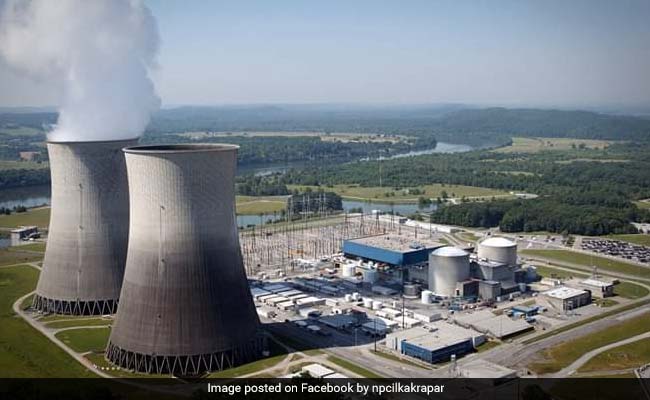Rwanda has embarked on an ambitious project to build its first small-scale nuclear reactor in partnership with Dual Fluid Energy Inc., a Canadian-German company.
The purpose of this project is not to generate electricity for the country’s grid but to test a novel nuclear fission approach developed by the company. The initiative aligns with Rwanda’s efforts to explore low-carbon energy solutions.
Potential for Future Expansion
Should the project prove successful, Rwanda and Dual Fluid Energy could establish a production line for such reactors in the country. This move represents Rwanda’s commitment to nuclear power as a means to address its growing energy needs and combat climate change. Currently, much of the country’s electricity is sourced from hydropower and diesel plants, with only 68% of the population having access to electricity, according to the Rwanda Energy Group.
Read also: African families turn to solar energy as governments’ electricity supply dwindles
Innovative Nuclear Fission Technology
Dual Fluid Energy is among more than 20 small modular reactor projects in development worldwide. These reactors differ from conventional ones by requiring less fuel, offering flexibility in location, and the ability to be prefabricated and shipped. Dual Fluid Energy is pursuing a nuclear fission technology based on “liquid fuel and lead coolant” that could produce emission-free electricity, hydrogen, and synthetic fuels.
Challenges and Scepticism
While the project shows promise, experts remain cautious. Jacopo Buongiorno, a nuclear science and engineering professor at the Massachusetts Institute of Technology, expressed skepticism about the novelty of the technology, stating that virtually all combinations of reactor coolants, fuels, and power conversion cycles have been considered over the past 70 years. He also questioned the ambitious timeline.
Juan Matthews, a visiting professor at the Dalton Nuclear Institute at the University of Manchester, acknowledged the interesting features of the reactor’s design but emphasized the need for further feasibility confirmation.
Rwanda’s government anticipates the reactor to be operational by 2026, with technology testing completed by 2028. The deal with Dual Fluid Energy is reported to be worth 90 billion Rwandan francs, equivalent to $75 million.
Amid Calls for Low-Carbon Energy
This announcement comes in the wake of the Africa Climate Summit’s unanimous call for a shift to low-carbon energy sources and a global tax on fossil fuels. Currently, South Africa is the only African nation with an operational nuclear power plant.
The CEO of the Rwanda Atomic Energy Board, Fidel Ndahayo, emphasized that the deal aligns with the country’s strategy to collaborate with startup companies working on small modular nuclear reactor technologies. Rwanda, known for its dense population, established its atomic energy board in 2020 and has ambitions for peaceful nuclear technology to drive development.
However, there have been concerns raised about the proximity of nuclear energy plants to populated areas. Frank Habineza, a lawmaker, voiced concerns about the potential risks associated with such facilities. Nevertheless, the government asserts its commitment to nuclear power for peaceful purposes and development.
As Rwanda moves forward with its nuclear aspirations, it joins the global effort to explore innovative and sustainable energy solutions to meet the needs of its growing population while addressing climate change challenges.
Firms team up to reduce carbon emissions, enhance energy resilience in SA
About Dual Fluid Energy
Founded in Canada in 2021, Dual Fluid Energy is a creator of nuclear technology whose goal is to offer cheap, emission-free energy. The company’s technology uses two fluids, one of which transports fuel and the other of which extracts heat.
The dual fluid concept, which is used in this technology, offers the greatest temperature and efficiency of any reactor designs now being developed, allowing businesses to produce large amounts of energy at reasonable prices.




